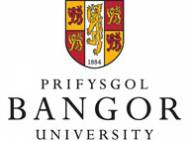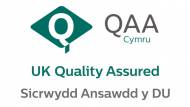Certificate of Higher Education in Counselling
Key Details
- Available at:Bangor - Parc Menai
- Study Mode:Part-time
- Course Length:
2 years, part-time. Wednesday 3pm - 9pm
Certificate of Higher Education in CounsellingUniversity-level Courses
Part Time
If you are applying to study part-time you can apply directly to the campus of your choice.
Course Description
This programme is undergoing re-validation this year, and as such content is changing for September 2026.
Students entering onto this course will have completed an Introduction and certificate in counselling skills course, and will have a keen interest in pursuing a career in the helping profession as a counsellor.
This course provides learners with the opportunity to both fulfil their academic potential and enhance their present and future employment as Counsellors. Students are guided through professional and personal development to enable them to become autonomous counsellors allied with the British Association of Counselling and Psychotherapy (BACP) ethical framework for good practice. This course meets the requirements for eligibility of BACP accreditation.
The course is flexible, and can be fitted around other commitments students may have. This allows opportunities for either part-time or full-time study, either for those returning to education or those who are in employment or engaging in Counselling practice, and wish to enhance their qualifications and employment status or opportunities.
Fees
Visit our course fees page for information on full and part-time degree course fees.
Financial Support
Visit our financial support page for information on the range of support available.
More detailed information on other costs associated with your course and work placements/work experience (if applicable) will be outlined in the programme validation document and explained to you at your interview.
Additional Costs
Additional costs may be associated with the following:
- BACP membership (up to £92/yr, 2024-25 rate)
- Personal indemnity insurance
- Enhanced DBS applications and/or annual update charges
- Personal counselling to meet the course requirement of a minimum of 12 hours
- Monthly 1:1 supervision sessions of 1.5 hour per month once client work has commenced
Frequently Asked Questions - Counselling Level 4 HE Certificate in Counselling
Can I start at Level 4?
Yes if you have 150 guided learning hours in counselling. Otherwise consider starting at L2 and progressing or starting with our FdSc in Counselling.
How long is the course?
2 years part-time, one day per week (30 weeks per academic year).
What day/time is the course on?
The delivery day varies for each course but the course usually runs between 9.30am and 4.00pm.
Can I do my classes on-line?
No, classes are delivered on site and are not accessible on-line.
When does the course start?
We usually offer the HE Certificate starting in September and January each year. It is offered each year, alternating course starts between Bangor and Rhos on Sea campuses each year, depending on demand.
How much is the Level 4?
- £2,700 per academic year.
Can I get funding for the course?
Yes, through Student Finance Wales subject to eligibility.
I’ve already got a degree, is funding still available?
It is not guaranteed but we would recommend that you still apply as it is sometimes possible to get funding, depending on your personal circumstances.
Can I pay in instalments?
Yes, you pay a minimum 20% deposit and then instalments are agreed with our Finance Department which are usually:
- 8 instalments for tuition fees over £500.
You will be asked to set up a standing order with your bank if you pay in instalments.
At what stage would I be able to work as a Counsellor?
On completion of the Level 4 Certificate of Higher Education in Counselling or BSc in Counselling, you will go into Practice for work experience during the course.
What is the best route to become a qualified Counsellor?
Complete Level 2, Level 3 & Level 4 HE Certificate in Counselling or complete the FSc/BSc in Counselling.
Do you provide guidance on finding a suitable placement?
Yes, the placement is for 100 hours and we can provide some suggestions. Students are expected to contact and confirm their own settings.
Is the Level 4 Certificate of Higher Education in Counselling accredited by BACP?
The course is not accredited by the BACP and at level 4 it is not a requirement. However, the course is underpinned by the BACP ethical framework and meets BACP standards for training hours and will lead to a Certificate of Proficiency for your membership of the BACP.
How do I apply
Applications are directly through our website - click on the “Apply Now” button on the relevant page.
Entry Criteria
- Successful completion of Introduction to Counselling and level 3 certificate in Counselling Skills and theory or equivalent 150 hours of accredited* Counselling skills training.
- GCSE passes at Grade C or above in Mathematics and English/Welsh 1st Language (or Key/Essential Skill equivalent).
- For applicants without these qualifications, evidence of literacy and numeracy skills at a suitable level to meet the demands of the programme successfully, will need to be demonstrated.
- It is possible for experienced practitioners to enter the programme with NVQ 3 or equivalent qualifications.
- Those without academic qualifications are considered on an individual basis in accordance with Grŵp Llandrillo Menai regulations.
All places are subject to a satisfactory interview.
(*evidenced by education provider) Prior to commencement:
- Must be psychologically and emotionally healthy to participate on a counselling course. ie an adequate self-reflective capacity (awareness and understanding of self); a high degree of personal integrity; the absence of major intra- or inter-personal difficulties which might inhibit the ability to work safely and competently with clients. Responsibility is placed on students to disclose any information deemed relevant as a commitment to working in accordance with the BACP ethical framework where the practitioner has a duty to ensure their wellbeing is such they can sustain the quality of work with clients (BACP, 2018).
- Provide two confidential references to support suitability on the course. Provide two references to support suitability on the course. It is recommended that these include one academic reference from a prior Counselling course tutor and one professional character reference i.e workplace or voluntary placement.
Language requirements:
- GCSE in Welsh or English as first language, grade C/4 or equivalent
- Any degrees, diplomas or certificates eligible above should have been taught and assessed in Welsh/English
- For overseas applicants, for entry onto Level 4: IELTS 5.5 or higher (with no element less than 5.0)
- For overseas applicants, for entry onto Levels 5: IELTS 6.0 or higher (with no element less than 5.5)
If your qualifications do not meet the entry requirements listed above, we would still encourage you to apply for the course you're interested in, as many of our courses will consider learners based on their previous work and skills experience rather than their qualifications.
Delivery
Taught session, skills sessions including role plays. Self-directed learning.
Start Date
September and January
Timetable
Level 4, part-time only. One day per week.
Contact:
For specific course enquiries, please contact:
Andrew Boorman: boorma1a@gllm.ac.uk
For general enquiries about our degrees, please contact: degrees@gllm.ac.uk
Assessment
- Essay
- Presentation
- Practical
- Information resource
- Portfolio
- Case Study
- Online discussion board
- Reflective Journaling / essay
- Podcast
Feedback
Where relevant, assessments will be marked and returned to students with constructive and developmental feedback. Effective feedback combines information which enables students to understand the strengths and limitations of their past performance, and information which enables them to recognise how future performance can be improved. Students will be provided with feedback in a timely manner and this feedback will justify how the grade has been awarded. Students will have the opportunity to reflect on the feedback given and identify their strengths, things they found challenging and areas for development that they will feed forward to their next assessment. Feedback will include linking evidence to assessment criteria to demonstrate how the student will have met the learning outcomes.
Progression
FdA Counselling
Campus Information Bangor - Parc Menai
The aim of the Cert HE in Counselling specifically is to equip students with the knowledge and understanding of professional and ethical counselling practice in line with the BACP standards of working with awareness of diversity, respect and safe practice. Students will develop knowledge of Humanistic approaches to counselling, with the main focus on Person - Centred Counselling theory and skills in order to facilitate, form and maintain counselling relationships. Particular attention will be given to developing person centred skills and qualities such as the core conditions and helping students develop personal and professional awareness.
For every 10 credits, students should engage with around 100 notional hours of learning. This will be approximately 30% direct learning contact and 70% independent student learning.
Modules:
Year 1:
Personal development:
The aim of this module is to encourage students to reflect internally to develop' personal awareness, facilitate personal growth and self-acceptance through engaging and interacting in process group sessions. Students will relate theoretical ideas and concepts to their own personal development; addressing personal development issues which may inhibit the ability to work effectively with clients; developing and enhancing their self-reflective capacity.
Assessment 1 – Portfolio of ongoing reflective journals throughout the unit with 3 formal critical incidents of 500 words each at various dates. (100%)
Introduction to research:
The purpose of this module is to introduce to students the concept of research, and demonstrate some of the key principle approaches and practices underpinning the research process. Additionally, this module aims to develop the study skills of the learners, enabling the production of sound academic writing, the introduction of critical thought and basic research skills. It will enable students to develop skills in academic writing, the use of academic conventions, information research, reflection and the management and organisation of their work.
Assessment 1 – An individual portfolio which consists of several tasks all of which need to be completed and submitted (2000 words, 100%)
Ethical practice:
This module aims to develop students’ understanding and knowledge of key ethical and professional standards, principles, frameworks and policies relevant to Counselling training and practice. Students will have the capacity to apply this in an effective and appropriate reflective manner to ensure ethical and safe practice and ethical decision making. It also aims to develop students’ knowledge of a number of aspects of contemporary professional practice, such as use of supervision, multi-disciplinary working, record keeping, and working online.
Assessment 1 - Online discussion board. Tutor will present each group of students with ethically related issues (5 questions) relevant to counselling practice. Students must present ways in which those ethical issues would be addressed and worked with, and engage appropriately with peer contributions.(100% 1500 word equivalent)
Developing therapeutic processes and context:
The aim of this module is to develop learner’s understanding of the role and responsibility of a counsellor. Particular attention will be given to working within a theoretical framework, and learners will learn the necessary skills and qualities required to develop and establish appropriate therapeutic relationships providing learners with the skills and qualities of working within a therapeutic framework. Learners will learn the importance of stages of the therapeutic process, developing and maintaining effective boundaries within their counselling placement.
Assessment 1: Reflective assignment: Identify two factors that have had a significant impact on your practice in placement and explain how these factors developed or hinder the development of the therapeutic relationship and reflect on your use of self. (100%, 1500 words )
Person-centred counselling:
This module is designed to provide students with a sound theoretical understanding of the person-centred approach, in terms of developmental theory and therapeutic process and skills. It will form the basis of the students’ exploration of clients’ and their own experiences. (Practical 100%)
Year 2:
Personal and Professional development:
The aim of this module is to encourage students to reflect, communicate and share their increased personal awareness, personal growth and self-acceptance through engaging and interacting in process group sessions. Students will relate theoretical ideas and concepts to their own personal development; addressing personal development issues which may inhibit the ability to work effectively with clients; developing and enhancing their self-reflective capacity. This module builds on the Personal Development module. Students are encouraged to share their increased self-awareness from the reflective process with the group; to communicate, verbalize and share vulnerabilities developing and demonstrating core moral qualities of a counsellor; personal reislices, integrity, humility and courage.
Assessment 1 - Individual Presentation 10 minute + 5 minute Q and A - Students will reflect and share significant insights gained throughout their counselling journey demonstrating their ability to use counselling theory to understand self and an increase in self-awareness. (LO1,2,3 and 4) (100%)
Diversity and inclusion in counselling:
The aim of this module is to increase learner’s understanding of diversity and inclusion within the counselling profession. The module will look at social, cultural and developmental psychological perspectives in relation to age, gender, ethnicity, disability, sexuality etc. An important aspect of the course will also enable students’ personal exploration through identifying their own theoretical building blocks; prejudice, discrimination and exclusion, stereotypes and any discriminatory attitudes and consider how this relates to their counselling practice and experiences of working with differences.
Assessment 1 - Reflective written assignment - Students will personally reflect and demonstrate increase self-awareness of their own values, attitudes and prejudices and how these impact on their ability to develop relationship depth with clients. Assessment 2 - Online discussion Board. Discussion board allocated to small groups of students (approx 3. Tutor will present each group of students with issues (3 questions) relating to anti-discriminatory practice in counselling and students will consider ways of promoting anti discriminatory practice with client work and within agency. 50% (Reflective journal/essay 100%)
Mental health and wellbeing:
The aim of this module is to raise students' awareness of common life events and obstacles to well-being and enhance students' knowledge of some of the most common mental health disorders. Students will be able to recognise important characteristics of mental health concerns as defined by the Diagnostic and Statistical manual of Mental Disorder, Fifth Edition (DSM-5; 2013) (reference will also be made to the ICD-10) and respond appropriately, safely and ethically. Students will be introduced to mental health assessment that may be carried out by counsellors, and enhance therapeutic interventions and skills to support clients experiencing specific psychological distress during counselling sessions.
Assessment 1 - Individually, learners will create and record a 10 minute podcast presentation shared with the group identifying a mental health disorder of their choice, explain the potential signs, symptoms, effects and treatment as recommended by the NICE guidelines.
Assessment 2 - An information sheet to help support the work of a counsellor when working with clients who present will mental health issues. Information sheet must include: Links to useful assessment tools; Links to safety plan templates; List of agencies for signposting and support. (Information Resource 50%/Podcast 50%)
Humanistic approaches to Counselling:
The aim of this module is to introduce students to the philosophy of existentialism and phenomenology. Students will gain a thorough understanding of the theory, skills and the philosophy that underpins the theory and will be able to apply their theoretical understanding to enhance their current Humanistic approach where appropriate. This module will also encourage students to consider how the existential theory and philosophy relates to personal beliefs about self, others and the world around them (Presentation 100%)
Enhancing counselling practice:
The aim of this module facilitates students to show they have developed the skills and knowledge necessary to work safely and effectively as a Counsellor. The module will encourage enhancement of the development gained from all previous course modules and will encourage consistency and advancement in all areas taught with the ability to combine symbiosis of theory, ethical practice and skills.
Assessment 1 – Portfolio of evidence including: Record of 100hrs client log, supervision log, supervision report, agency report, log of personal counselling, BACP CPD log. **This assessment requires no additional academic work but to gather information from supervisor and agency**. Assessment 2 - A case study providing an overview of the therapeutic counselling work undertaken with one client (covering at least six sessions). The case study must demonstrate the skills and knowledge necessary to work safely and effectively, providing specific examples throughout each taught module of the course. (Portfolio 50% / Case Study 50%)
Other details
Course type: University-level Courses
Level:
4
Programme Area:
- Counselling
Awarding Body: Bangor University


